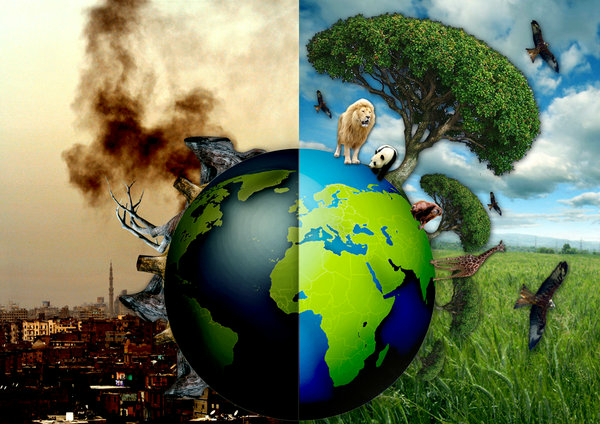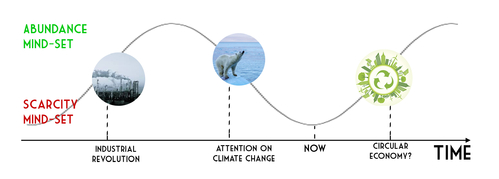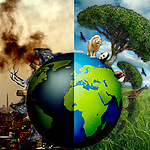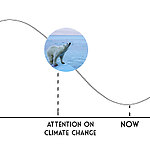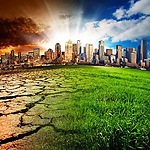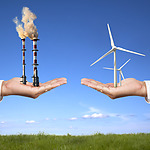During one of the group meetings we were discussing about what would happen if all energy would be generated in a sustainable way on Texel, according to the goal of 100% self-sufficiency in 2065. Looking at the lifestyle aspects (our sub-system is Sustain Lifestyles), there are many moments people directly or indirectly use energy. Currently there is a development that people are getting increasingly aware of relevance to save energy: turn the lights off, turn the heating some degrees lower, etc. Simultaneously people are also increasingly installing solar panels on their roofs. They become self-sufficient in energy, they even can give energy “back” to the grid because they produce more energy than they consume. If in the future – if the goal is reached – everybody produces sufficient renewable energy, might this lead to more consumption again? Might there be a shift in the other direction again? Might people think: there is abundant renewable energy available, so I can leave the light on and turn the heating some degrees higher again? Might people become lazy again and will awareness on energy use decrease?
I think the previous example can be related to the concepts of scarcity and abundance. Sustainability is nowadays often perceived as “doing less”: consuming less, producing less waste, turning the lights off, etc. This is based on the scarcity mind-set in which thrift is a core value. However, if there would be sufficient renewable energy, one will probably switch to an abundance mind-set again. So might it be that depending on the technical and environmental developments, there is a continuous change in periods of scarcity and abundance? Looking at recent history this could be confirmed. Throughout the human history scarcity was often taken for granted. But when the fossil fuels were discovered (“a seemingly limitless source of concentrated energy”) this scarcity mind-set driven by thrift was rapidly replaced by an abundance mind-set driven by consumption. This was empowered by the Industrial Revolution. However, by the end of the 20th century climate change got our attention and a new period of scarcity followed the period of abundance. (Sheehan, 2015)
Besides this I wonder if scarcity is negatively perceived and if abundance is positively perceived? I would assume that people are less willing to contribute and adapt their behavior if there is a negative incentive. And if we as humanity want to save the environment, we should rather focus on the positive incentives. Madden (2012) quotes this perfectly: “relentless pessimism will not engage the public”. Might it be that humanity is used to the abundance mind-set, which started after the Industrial Revolution, is that strong that people are not willing to change to the scarcity mind-set, even if this would mean that there would be a disastrous climate change? Might it be better to create a new type of an abundance mind-set that actually is solving sustainability issues but will not affect the lifestyle and behavior of humans? Maybe we are in a transition period now; we have a period of scarcity in order to have a period of abundance again in the future. I think the Circular Economy fits very well into this picture future of abundance.
I tried to visualize these thought in a graph/timeline. However, the real question is can we get to this ultimate sustainable state in which all energy is renewable? Because if we don’t get to this state, do we need to remain the scarcity mind-set in order to let the planet and humanity “survive”.
Madden, P. (2012) Is the future one of abundance or scarcity? The Guardian [online] Available from: http://www.theguardian.com/sustainable-business/blog/technology-advances-resource-scarcity-abundance Accessed on 12-12-2015
Sheehan, B. (2015) Competing Visions of Sustainability: Scarcity or Abundance? Resilience [online] Available from: http://www.resilience.org/stories/2015-11-23/competing-visions-of-sustainability-scarcity-or-abundance Accessed on 12-12-2015
